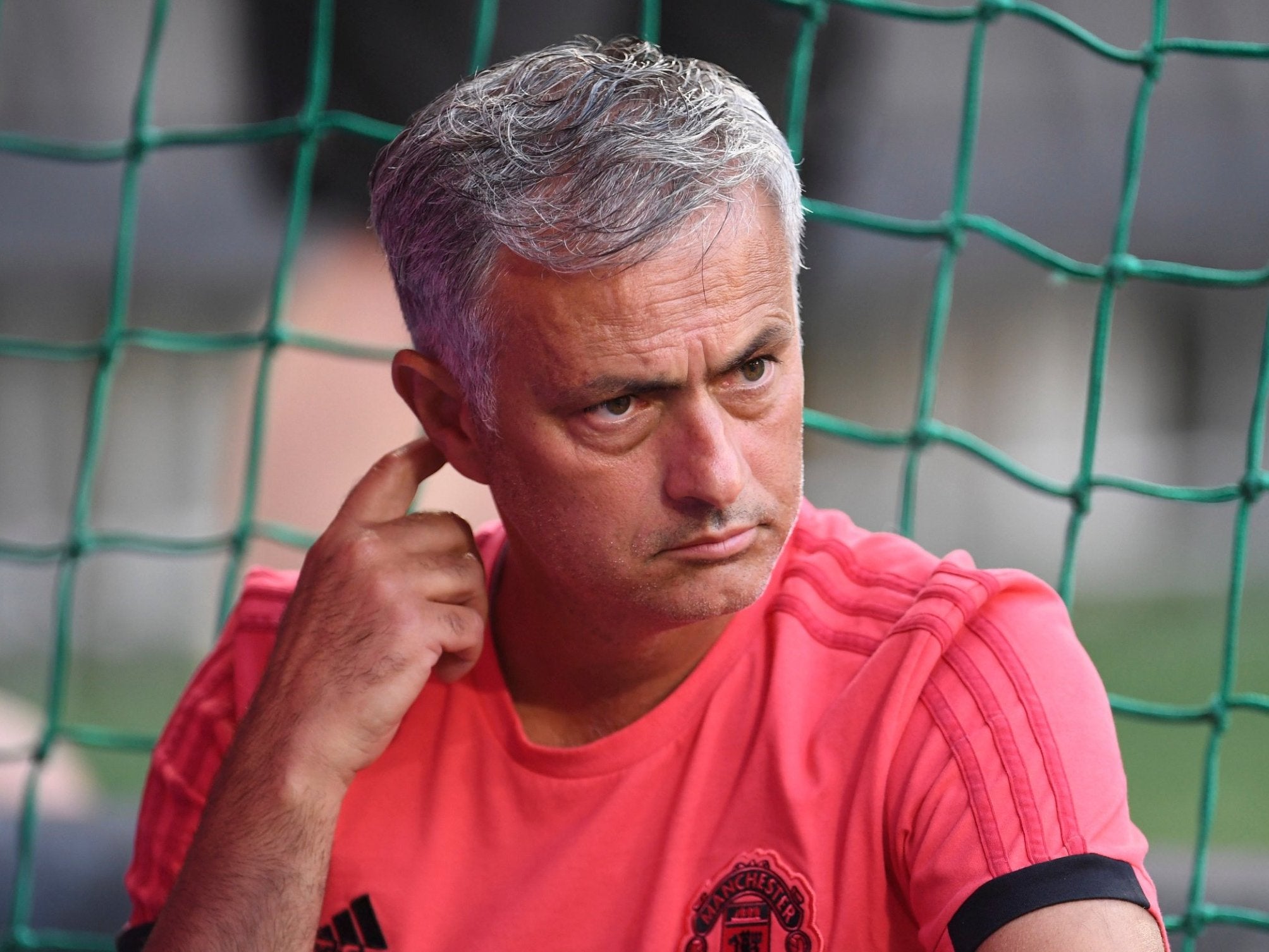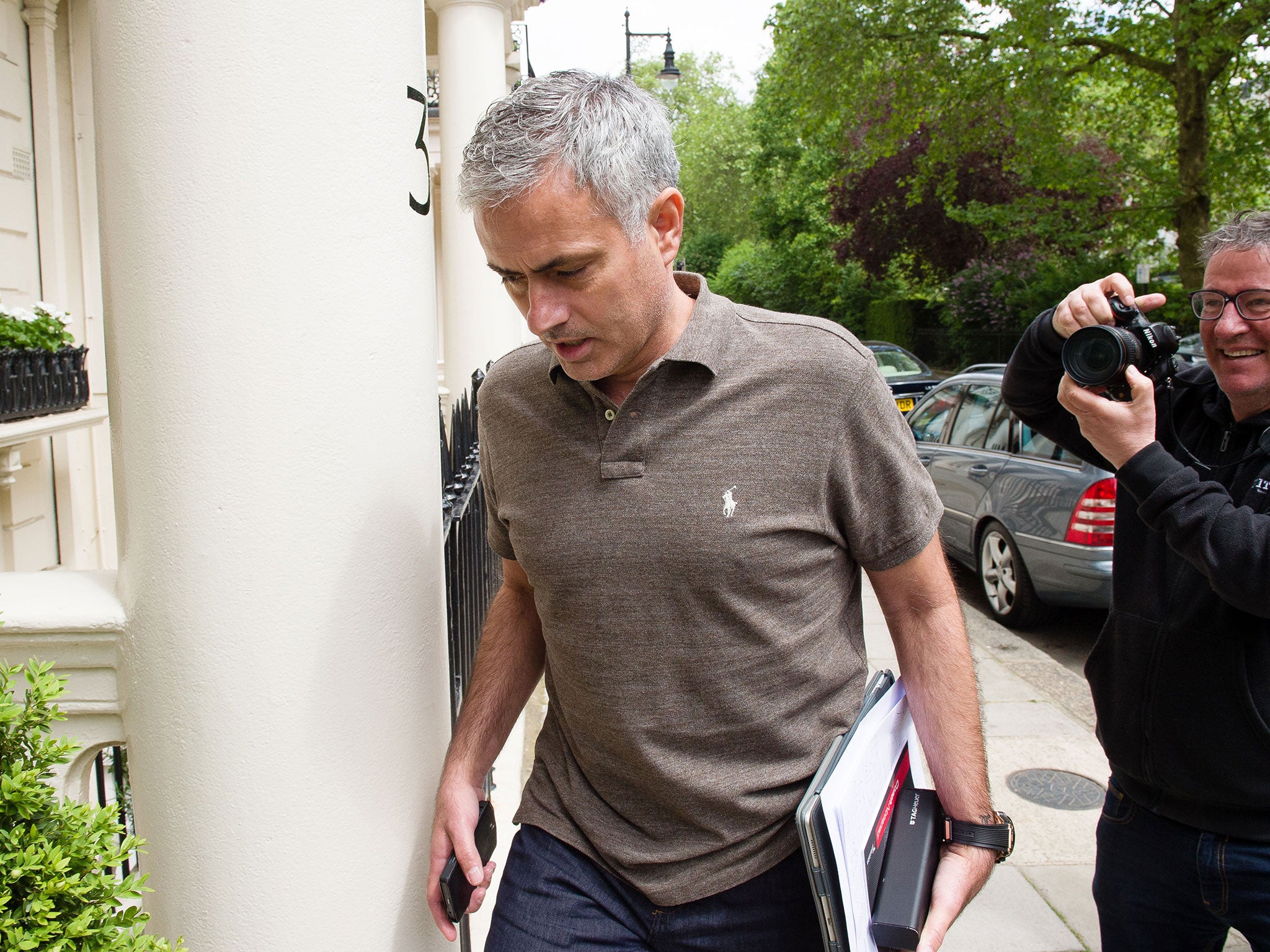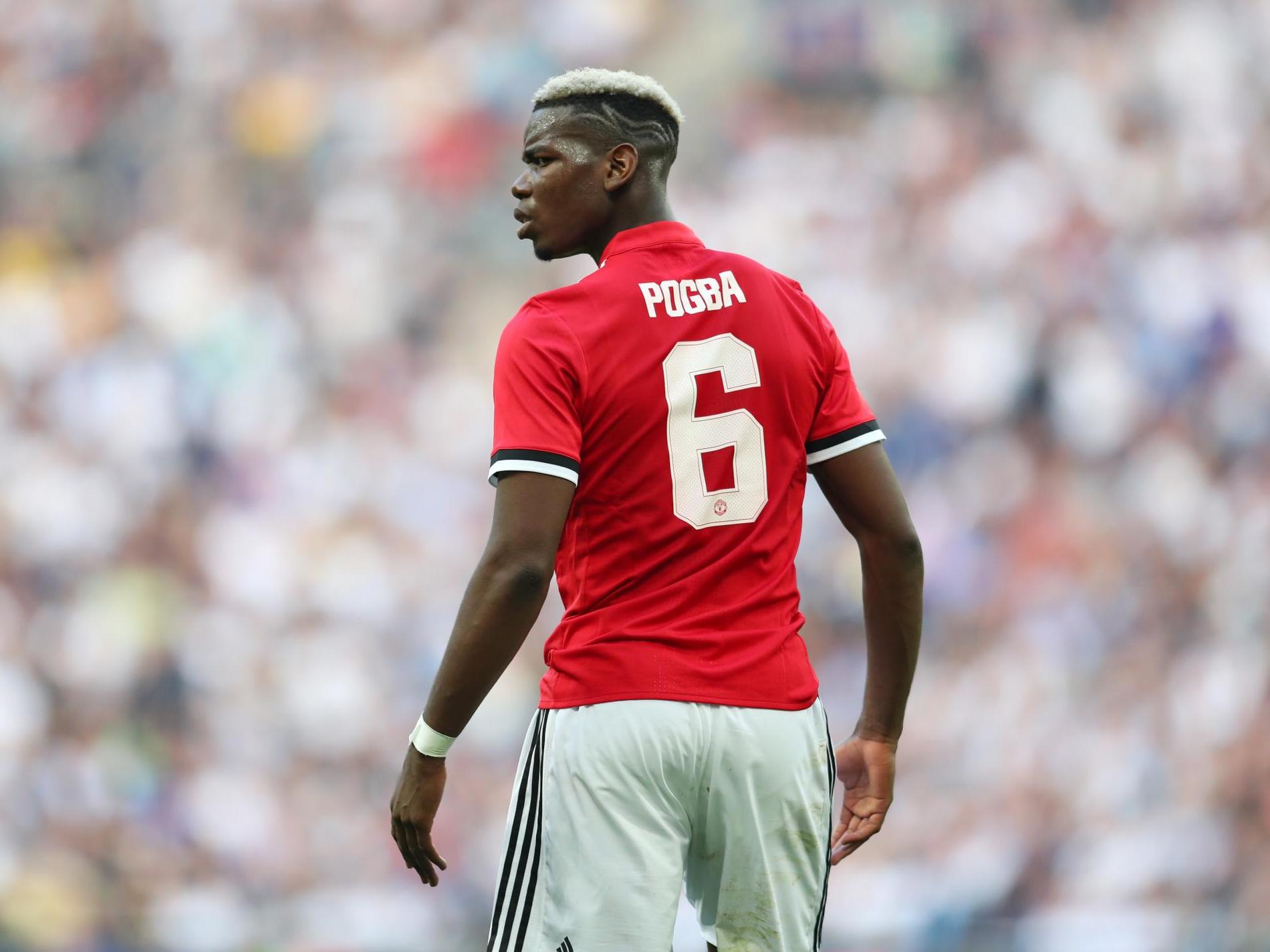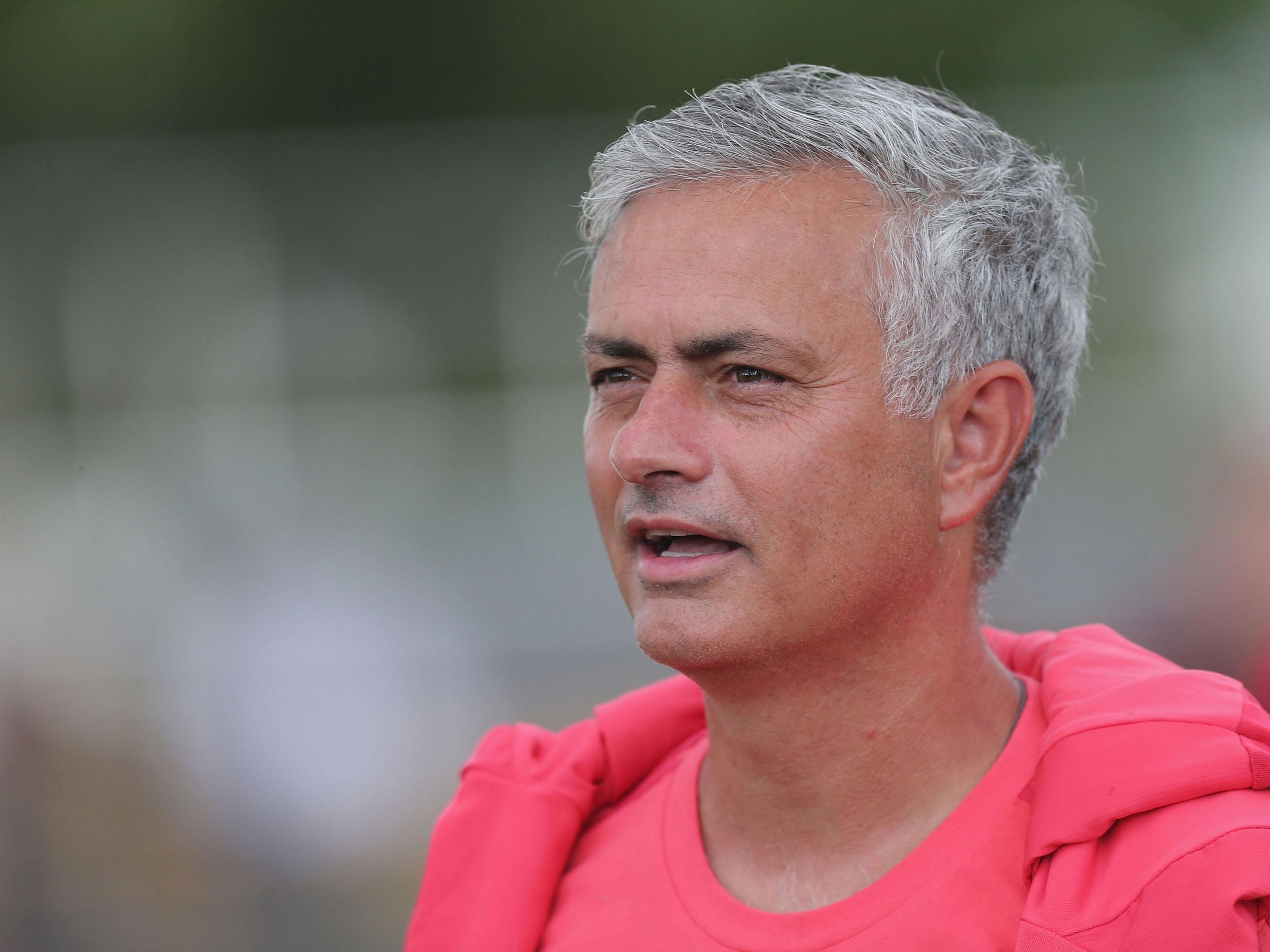There’s far more to Jose Mourinho’s precarious situation at Manchester United than third-season syndrome
The United manager has seen second-season problems at Real Madrid and Chelsea lead to a third-season eruption, with the same ingredients now evident at Old Trafford

With all of the renewed debate about Jose Mourinho’s third seasons, and particularly that fateful final year at Chelsea that has drawn so many parallels with Manchester United now, there is genuinely one big myth.
It is not, however, what many might think. The myth is that Mourinho’s problems started with that third season, and the notorious controversy with Dr Eva Carneiro during the opening 2-2 draw with Swansea City. That incident really just brought things to a head, because the problems had actually started halfway through his second season – the title win.
That was when Mourinho began to complain about referees and scheduling way beyond the mention of anything else that the Chelsea squad thought it was “weird” and “obsessive”. A spell had been broken. They didn’t see his man-management as any way “special” any more, but needlessly oppressive, and increasingly tiresome.
It was so similar to what happened at Real Madrid and this is the real story of Mourinho’s career after all of those trophies, and something that may well be the defining storyline of United’s 2018/19 season. It is certainly what frames it, the question of whether the flip side of the Portuguese’s ferociously intense management will frag another third campaign.
From that perspective, the theory is a bit of a misnomer. It is not that Mourinho’s third season just happens to be where he has issues, it is that two years is about the point when the emotional intensity of his approach starts to naturally exhaust itself, when the connections that bind his teams start to come apart.
It would also be a mistake to conclude that the “freak” of the 2015/16 season is the only real example of this. It is just the most extreme, a perfect storm of negative developments, leading to the most incredibly imperfect of seasons for a top side.
But that’s also the thing. It was a campaign of unprecedented poor quality for a manager who had never finished below third since FC Porto, but that’s not to say there weren’t precedents from his third seasons.
The two before it ultimately saw many of the reasons that would result in Mourinho failing to win the title, and losing his job later that year. Even if neither of those with Chelsea 2006/07 and Real Madrid 2012/13 were anything like the 2015/16 collapse, they cannot just be dismissed, especially when many of the problems are present now.

The first is that causing the most headlines: transfers. Even if Mourinho has a very fair point about United’s recruitment and the need to at the very least improve the defence and wide players, the manner he does so takes it to extremes that just cause more problems. Those in power get irritated. That was precisely what happened with Roman Abramovich in 2006/07 and the summer of 2015, and that is what is starting to happen now with United. Sources say it is getting “testy”. It sometimes feels as if Mourinho makes such a point of this to make it known that he should not be blamed for any poor results that come, but some of his comments then just make those poor results self-fulfilling, a classic case of talking yourself into trouble.
They set the wrong tone for the season, creating excuses and instantly removing a side’s aura so that opposition sides suddenly go at them, sensing this vulnerability. If those results then do start to go wrong, the manager’s own comments have already created more a crisis out of them. It all feels like end-times doom… rather than just a bad game at the more unpredictable start of the season.

This really began in 2006/07, as a previously cast-iron Chelsea now felt so much more fragile, and there to be beaten in the league. Middlesbrough went at them and beat them in just the second game of that campaign. It can also conversely mean there is less sympathy from owners when bad results do come, and it is also known that players have been irritated by some media comments about the squads. Not all of the Chelsea players were unhappy when he left in 2007.
This plays into the second problem: Mourinho’s psychological management. This was previously much less complicated than it became. It used to be just that he used to demand such intensity from his players that they simply couldn’t keep up the same levels. It was impossible and was similarly seen at Chelsea and Real Madrid.

It was also seen at Internazionale...but Mourinho had by then gone. Rafa Benitez has always got criticism for his handling of that job but testimony since suggests that his biggest error was just taking it, as this was a team filled with players in their late 20s and early 30s who were coming off an emotional peak. There was always going to be a hangover.
At Madrid, however, there was never quite a party in the first place. The mood was edgy from the beginning, a series of winners just weren’t as open to Mourinho’s style for what was really the first time in his career, and one feeling was his response to that was too suffocating.
This was also when Pep Guardiola started to influence real change in the game, and many began to detect a change in Mourinho. His authority over players wasn’t as natural as it used to be, and he reacted in increasingly draconian ways.
This has become a more pronounced problem since Madrid. The emotional intensity of his teams has just given way to more intense emotion from the manager, where his response to almost every problem is hardline and hard criticism.
That is even harder to sustain, and has given rise at United to something especially seen at Madrid 2012 and Chelsea 2015: a tension between the playing staff and the manager; a mood of suffocation.
The Paul Pogba situation distils much of this, given he is United’s biggest star, and still has the biggest issues with Mourinho.

Those close to him felt there was no need for the manager’s latest comments, putting an unnecessary sour edge to the summer, for a player that had been in such a buoyant mood going into the new season.
It feels like it wouldn’t take too much for that blow up.
But that’s also a key point here. Part of the reason that Chelsea 2015/16 became what Antonio Conte infamously chided as “a Mourinho season” was because a spark was lit with the Dr Carneiro incident, igniting the gasoline left from so many other problems already there. Then it blew up.
That isn’t to say it will happen at United. Even if it feels like there are as many canisters of gasoline in place in the form of those problems inherent to a Mourinho third season, that doesn’t necessarily mean they will explode, because there still might not be the incident to ignite it.

Mourinho’s football also remains contained enough and resilient enough that United can again grind their way through a season, and gradually pick up confidence and rhythm.
It’s just that right now, going into a season opener against Leicester City where it feels like United really need a good result more than just finding their feet, everything is on edge.
That is the very hallmark of a Mourinho third season. And that's no myth. It's a big issue to be overcome. It is what will frame this season.
Join our commenting forum
Join thought-provoking conversations, follow other Independent readers and see their replies
Comments